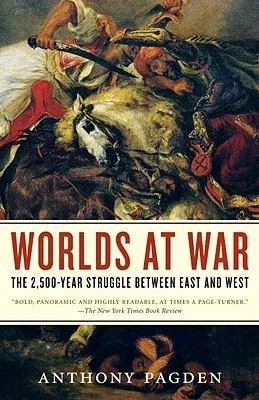Spanning two and a half millennia, Anthony Pagden's mesmerizing Worlds
at War delves deep into the roots of the "clash of civilizations"
between East and West that has always been a battle over ideas. It
begins with ancient Greece and its epic fight against the Persian
Empire, then sweeps to Rome, which created the modern concepts of
citizenship and the rule of law. Pagden dramatizes the birth of
Christianity in the East and its use in the West as an instrument of
government, setting the stage for what would become, and has remained, a
global battle of the secular against the sacred. Islam, at first
ridiculed in Christian Europe, drives Pope Urban II to launch the
Crusades, which transform the relationship between East and West into
one of competing religious beliefs.
Modern times bring a first world war, which among other things seeks to
redesign the Muslim world by force. In our own era, Muslims now find
themselves in unwelcoming Western societies, while the West seeks to
enforce democracy and its own secular values through occupation in the
East. Pagden ends on a cautionary note, warning that terrorism and war
will continue as long as sacred and secular remain confused in the minds
of so many.
Eye-opening and compulsively readable, Worlds at War is a stunning
work of history and a triumph of modern scholarship.

